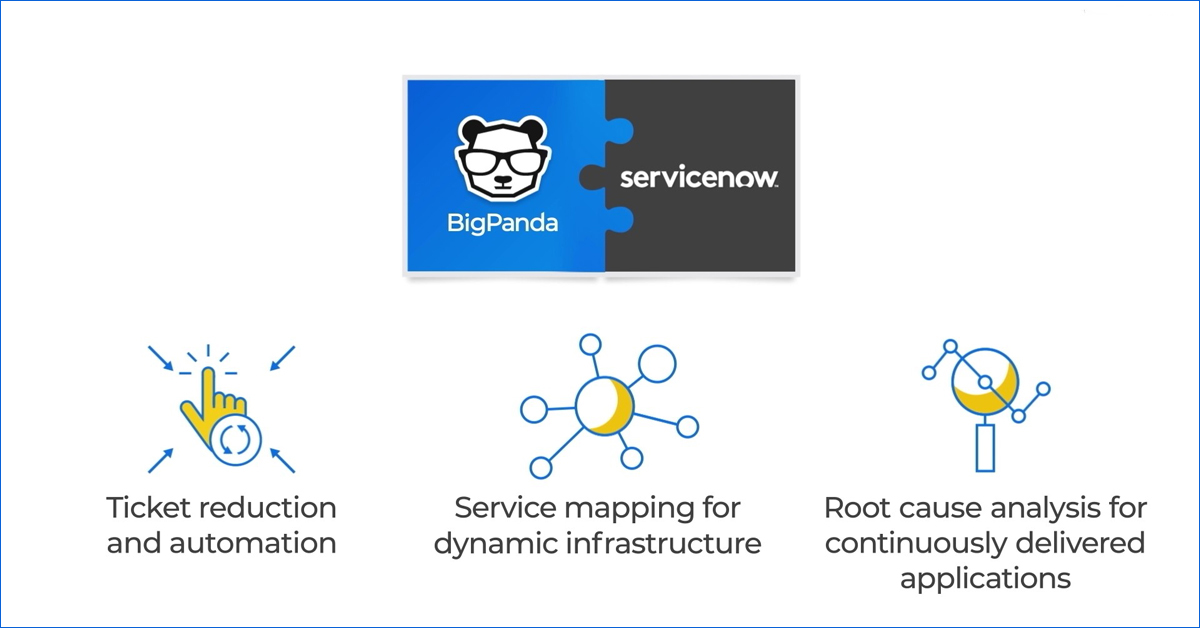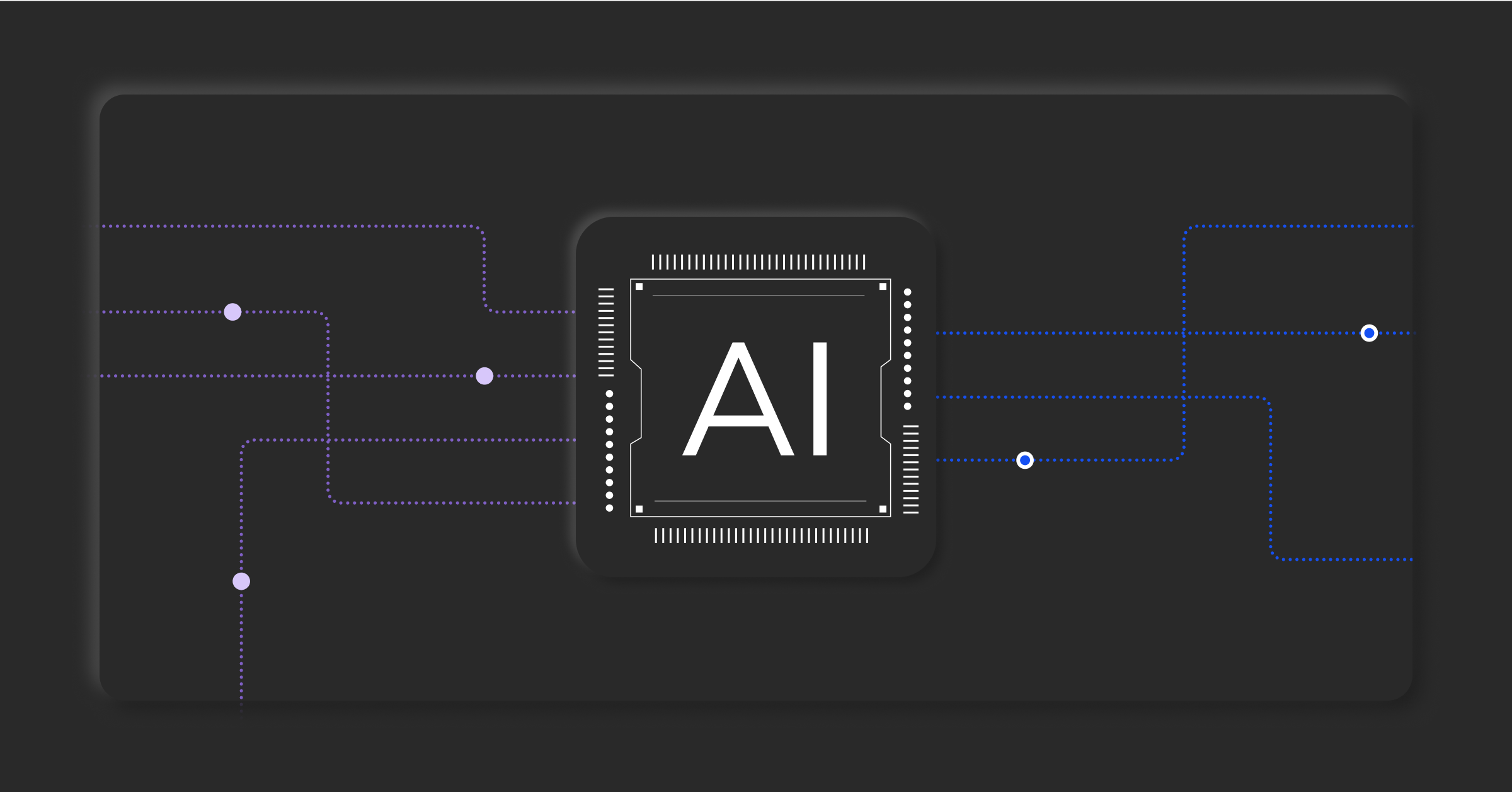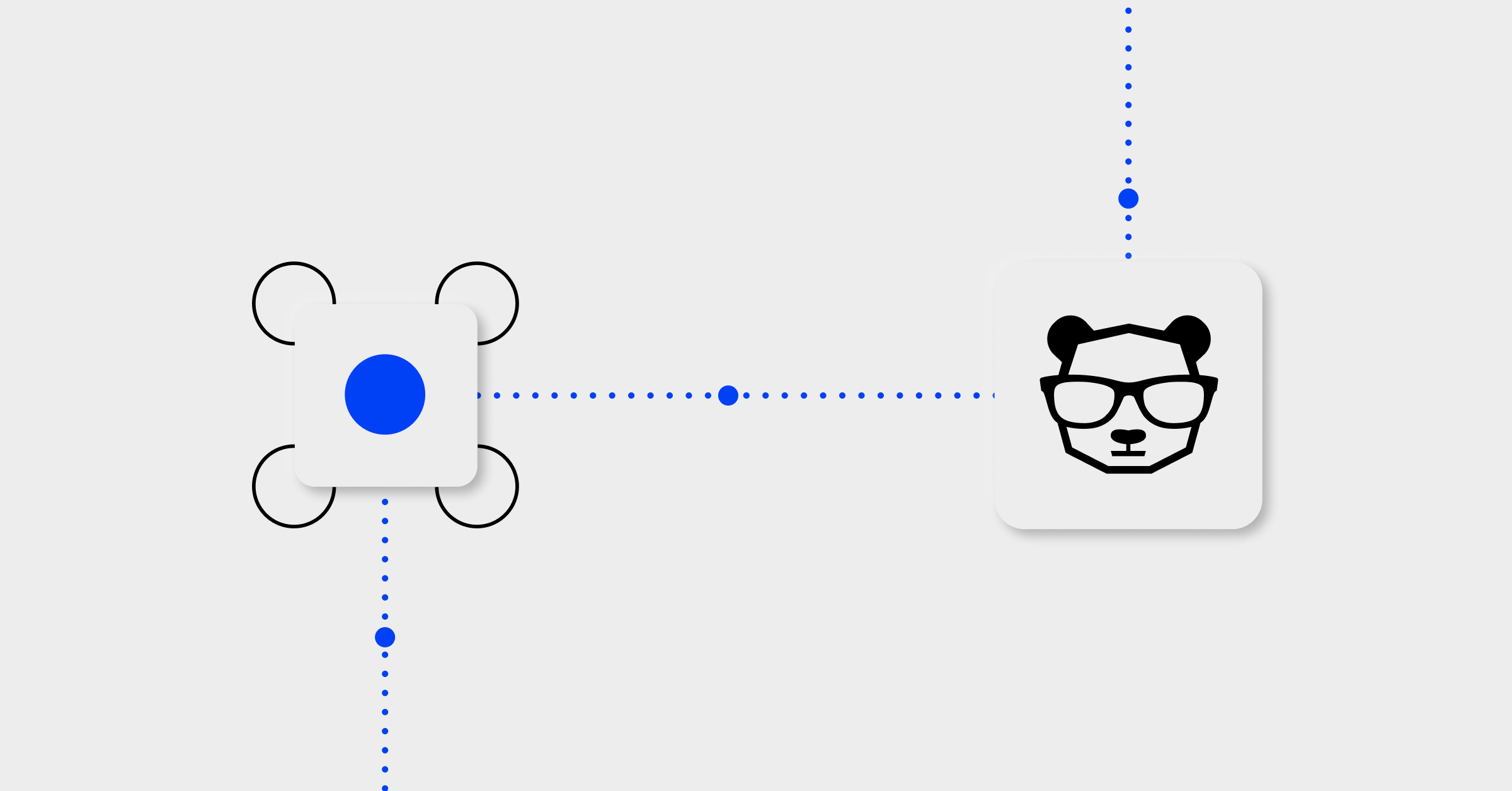BigPanda’s ServiceNow integration just got better

ServiceNow is widely used across Fortune 1000 and Global 5000 enterprises, so it’s no wonder that the majority of BigPanda customers use ServiceNow and integrate with it to streamline their ticketing requests. BigPanda’s AIOps Event Correlation and Automation Platform provides context-rich incidents to IT Ops teams relying on ServiceNow and helps them gain end-to-end real-time visibility into their operations. This is achieved by a powerful out-of-the-box ServiceNow integration that provides bi-directional synchronization between BigPanda and ServiceNow. This mature and robust integration streamlines IT operations in three key ways:
- Ticket reduction and automation for high-volume monitoring data – BigPanda’s open-box machine learning correlates thousands of monitoring alerts into actionable high-level incidents, reducing noise by up to 99%. This results in far fewer tickets that are automatically created within ServiceNow for each of these incidents. Bi-directional sync ensures that tickets are up-to-date on both ends with the most recent changes throughout the incident’s lifecycle.
- Service dependency mapping for dynamic infrastructure – BigPanda’s real-time topology mesh ingests topology data from the ServiceNow CMDB and complements it with data from your configuration management, cloud and virtualization platforms, and APM tools. It then creates and presents ITOps teams with a holistic, always up-to-date view of their full technology stack and is used to drive high-quality event correlation. This drives high-quality event correlation.
- Root cause analysis for continuously delivered applications – BigPanda collects change data from multiple sources including the CI/CD pipeline and ServiceNow Change Management in order to correlate these changes to the incidents they have caused. Under the hood, BigPanda harnesses AI/ML to suggest a suspected root cause in real-time. This allows your IT Ops teams and/or developers to quickly and easily identify and roll back these changes to resolve outages.
These key capabilities allow enterprises to unlock additional value from their existing ServiceNow deployment. But we are not stopping here: as part of our ongoing investments in our integrations, BigPanda is enhancing this integration even further.
So, how did we make an already good integration better?
Earlier this year, BigPanda announced a host of new features and improvements to its AIOps Event Correlation and Automation platform. BigPanda’s ServiceNow integration leverages these enhancements to deliver deeper self-service abilities to its users. This makes it possible to achieve faster results with no custom integration work. The improvements apply to all four domains of our integration- with ServiceNow’s Incidents, Changes, CMDB, and Maintenance Plans.
Let’s explore how the new integration maps to BigPanda’s product announcements from earlier this year.
Automatic Incident Triage
Automatic Incident Triage (AIT) allows for improved incident resolution automation through custom incident tags, which can increase performance and availability, improve NOC productivity, and reclaim critical FTE hours. Our new integration enhances the ability to use ServiceNow with AIT:
- Incident tag mapping. The improved ServiceNow integration supports the bi-directional sync of our new incident tags (for example, priority tags) throughout the lifecycle of the incident.
- Wildcard support in the primary alert selection. BigPanda allows you to automatically create ServiceNow incidents, a process that requires the selection of a primary alert. The new release now allows wildcard support for selecting that primary alert.
Event Enrichment Engine
Event enrichment is a process of programmatically adding contextual data to alerts by ingesting and attaching information from topology, change, orchestration, and other relevant data streams. This improves correlation and alert noise suppression, assists in accurate root cause analysis, and allows the triggering of workflow automation. Our new ServiceNow enhancements enable greater flexibility when using ServiceNow CMDB data for enrichment:
- CMDB Override Existing Option. The updated integration adds ServiceNow support for this enrichment flag option, enabling better enrichment of ServiceNow incidents. The flag allows overriding the existing value of a tag with a user-defined value set in BigPanda enrichment maps.
- CMDB Aggregation map. The CMDB aggregation map allows you to populate BigPanda alerts with information from multiple ServiceNow records, such as in relationship tables, in a single enrichment. This provides enrichment flexibility by supporting one-to-many relationships between query keys and results in the CMDB integration map.
More goodness
Further enhancements to the integration include:
- Sync Change Tasks for Root Cause Changes (RCC). Often customers have additional contextual data stored in the change tasks table in ServiceNow and they may wish to use this data to enrich any given incident. With the new release, IT teams now have the option of using change tasks instead of change requests to populate RCC.
- Maintenance for outage tables. Enhancements to the application now allow the IT Ops team to use outage tables to create Maintenance Plans instead of change request tables. By doing this, you can suppress alerts during an outage that you are already aware of and stop flooding operators with alerts.
All these new features and enhancements are a part of BigPanda’s continued focus on self-service. As Shai Israel, our Vice President of Product Strategy pointed out in his blog, ease of use is the new standard, and this new and updated ServiceNow integration offers exactly that. IT Ops teams using BigPanda’s ServiceNow integration today can move faster and on their own.
So, that’s all for now. You can read the full changelog here.
All the above features and improvements are already available in the ServiceNow integration. The latest version of the BigPanda ServiceNow Integration can be downloaded from the ServiceNow Developer Portal.
If you are still using the older ServiceNow app from the ServiceNow app store, you may need to migrate to the new update set. Read more about migrating to the developer portal version here.
Read more about BigPanda’s ServiceNow bi-directional integration here!



